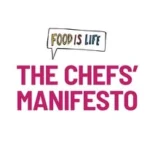Water is the precursor to life.
Without it,
the planet would be
Desolate
Inanimate
Dead.
–
Opening Pandora’s Box of Water
In support of World Water Day 2023
By Chef Chris Locke
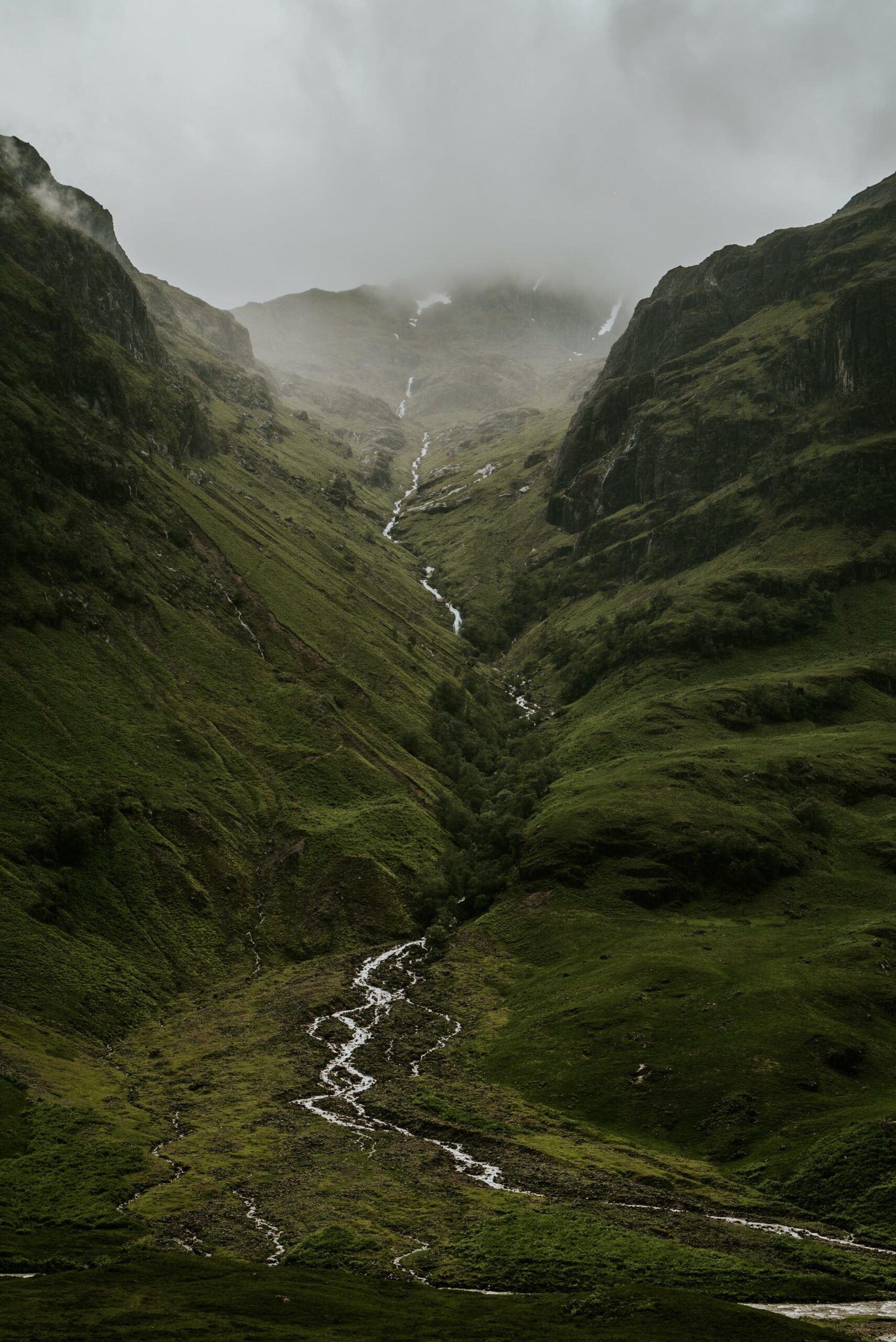
Being born and raised in England my youth was filled with the gloomy rain-soaked days that often cover the country, raining on average 160 days out of the year. The significance, and privilege, of this gift was lost on me. It was always present, like an omnipotent god, unleashing its indiscriminate wrath on all those who step outside.
But even in an environment with such abundant water, I remember most summers had a ban on using hose pipes due to drought. The ever-shifting dynamic of plenty and scarcity meant nothing more than decisions about what to wear.
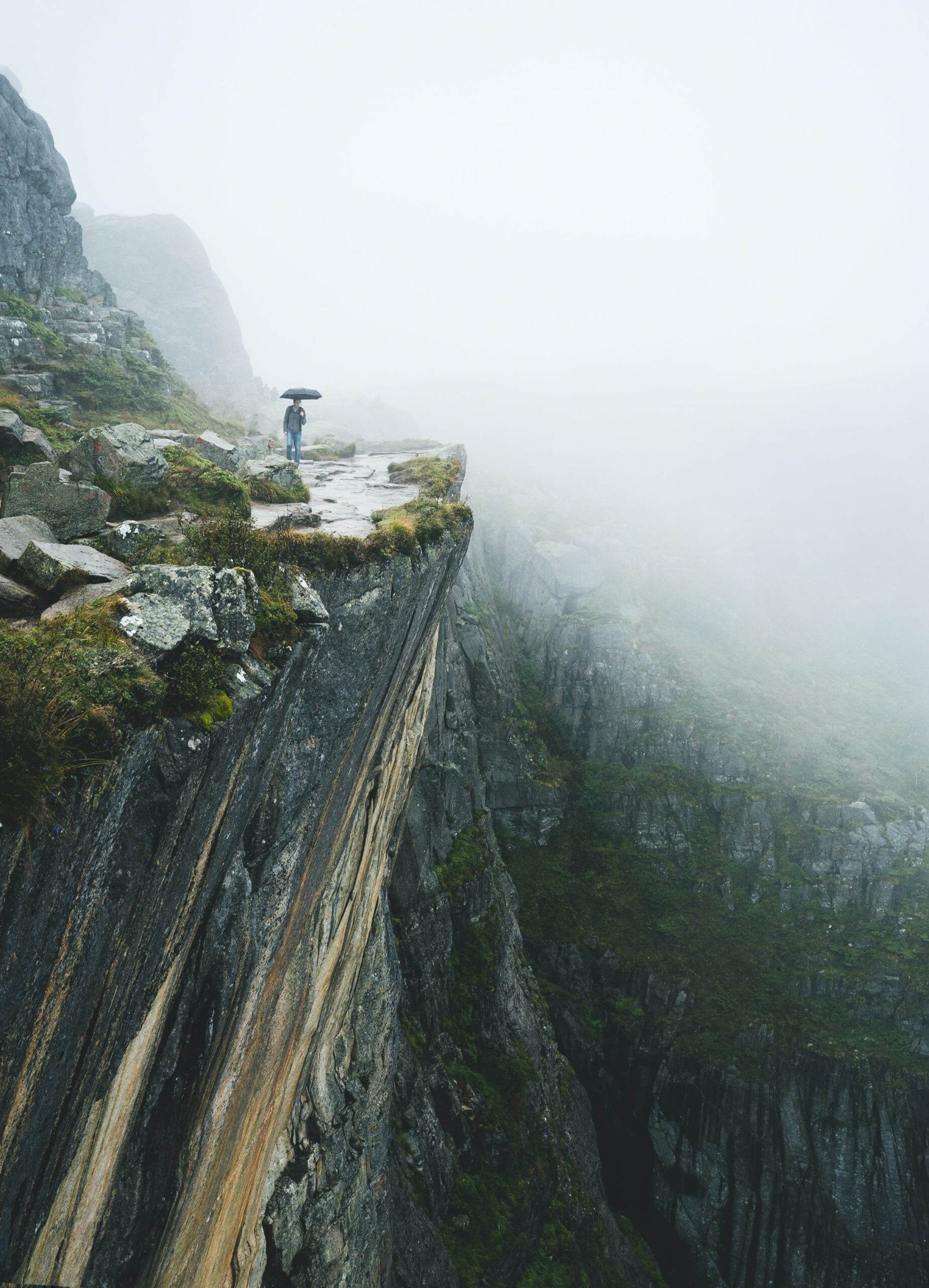
What I failed to grasp were the implications it had for our agriculture, diet, and cuisines.
Beyond my home country, water is a constant topic of discussion. We are all living IN a climate crisis and a warming earth will mean dry areas of the world will get drier and wet areas will receive more precipitation (source). The implications to our food systems are such that it will become increasingly difficult to predictably grow crops while also contributing to the humanitarian crisis estimated to force 1.2 billion people into climate refugees status by 2050 (source). Never before in history has a generation been faced with a more devastating prospect.
The changing planet and the redistribution of water around the world is not the only threat to water access. Water has been and is used as a tool of oppression, most notably to indigenous and low-income communities around the globe.
Weaponizing Water
The provision of clean water is an UN-recognized human right, yet there are 34 long term drinking water advisories for indigenous communities in Canada; in a country containing the 4th largest renewable supply of fresh water in the world. 73% of all First Nations’ water systems are at moderate to high risk of being contaminated.
This system of oppression has also been seen in Nigeria, the US, Australia, Yemen, Syria, Iraq, Israel and also Mexico, where the Mexican government has been accused of allocating public water supply to large companies, causing drought in poorer and marginalized communities. With our climate and weather patterns quickly changing, it comes as no surprise that acts of water-associated violence against communities doubled between 2009 and 2019.
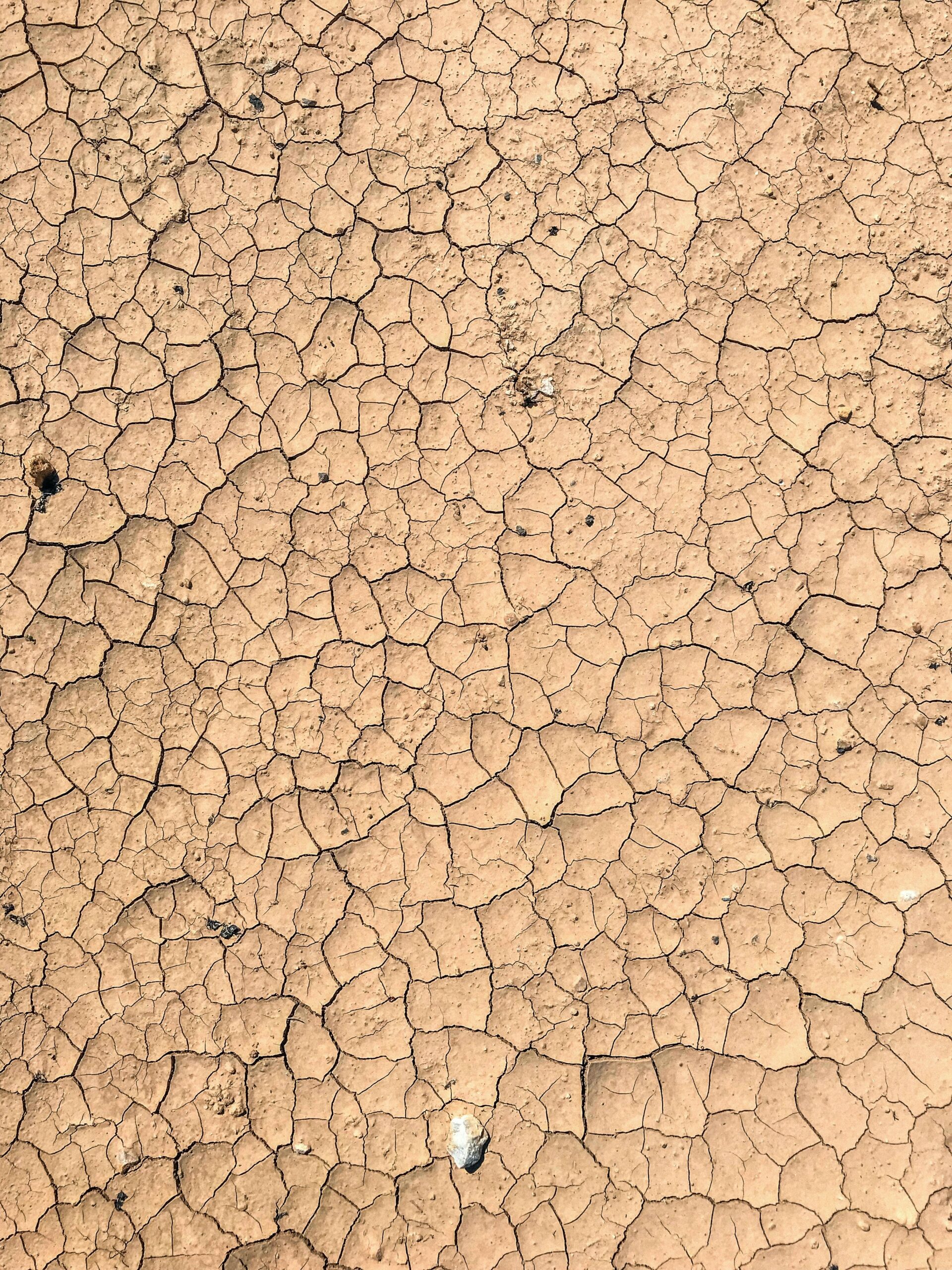
The global distribution of water and the coming changes in rainfall patterns will have tremendous effects on agriculture and the distribution of which crops can be grown where
Water Mindful Agriculture
The bulk of fresh water on the planet is used in farming; the highest proportion of which is utilized in the production of livestock. In fact, 60% of all freshwater on earth is used in the practice. The reductive methods of intensive animal farming employed over the past 70 years have many drawbacks for the environment, our health, and communities but also place a heavy burden on the supply of freshwater. Growing alternate sources of protein, which use less water, has many positive implications for creating a more sustainable food system.
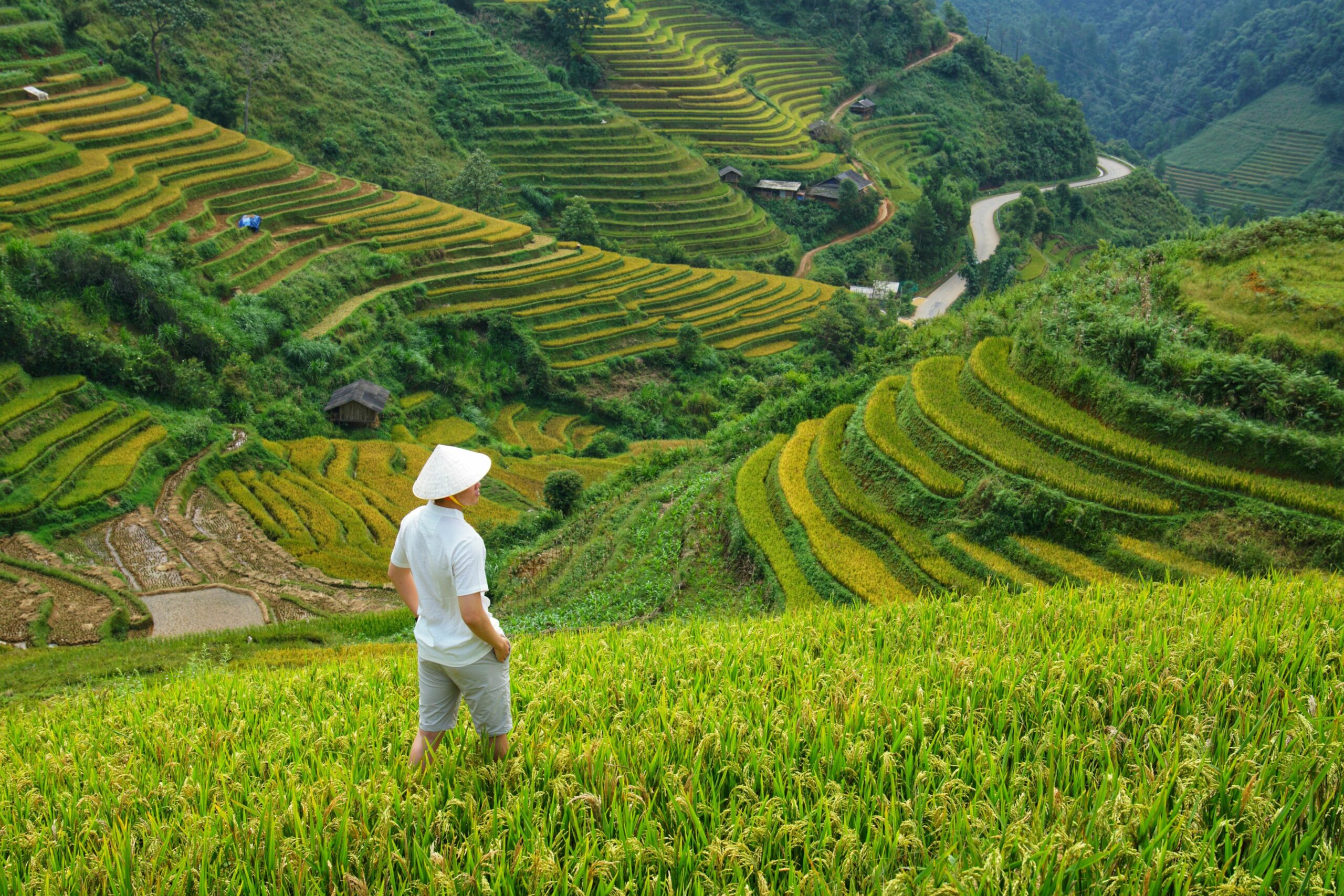
In regards to vegetable and fruit farming, there are changes that are being made to use water responsibly. Practices of regenerative agriculture that work with the surrounding ecosystem focus on soil health. Soil is a key component of growing food but also in effective water management. Healthy, robust soil is better able to absorb water from precipitation which in turn replenishes groundwater in aquifers and reduces run-off from the field, which also carries nutrients, into rivers and lakes.
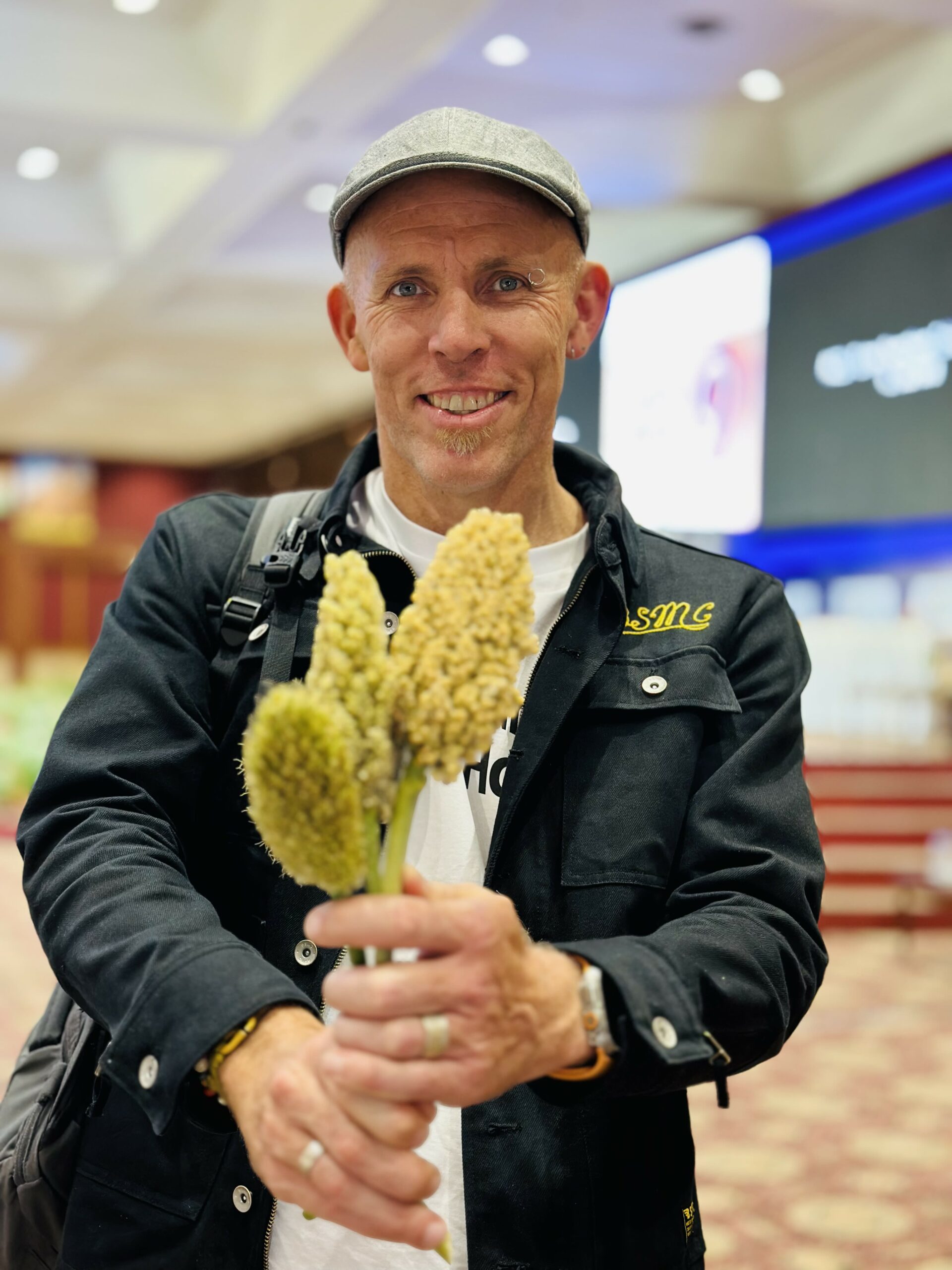
By adopting these regenerative practices and moving away from conventional farming, as well as choosing to farm diverse crops that require less water, our systems of agriculture are much better able to weather climatic shocks and stressors, such as periods of heavy rainfall and droughts. One such crop, for example, is millet. Millets are a drought resistance crop that can be grown in challenging conditions and offer incredible sustenance potential plus a whole host of nutritional benefits. Many beans, pulses, and legumes also require far less water and are excellent cover crops, fixing nitrogen back into the soil, and improving soil health, whilst also containing more nutrition.
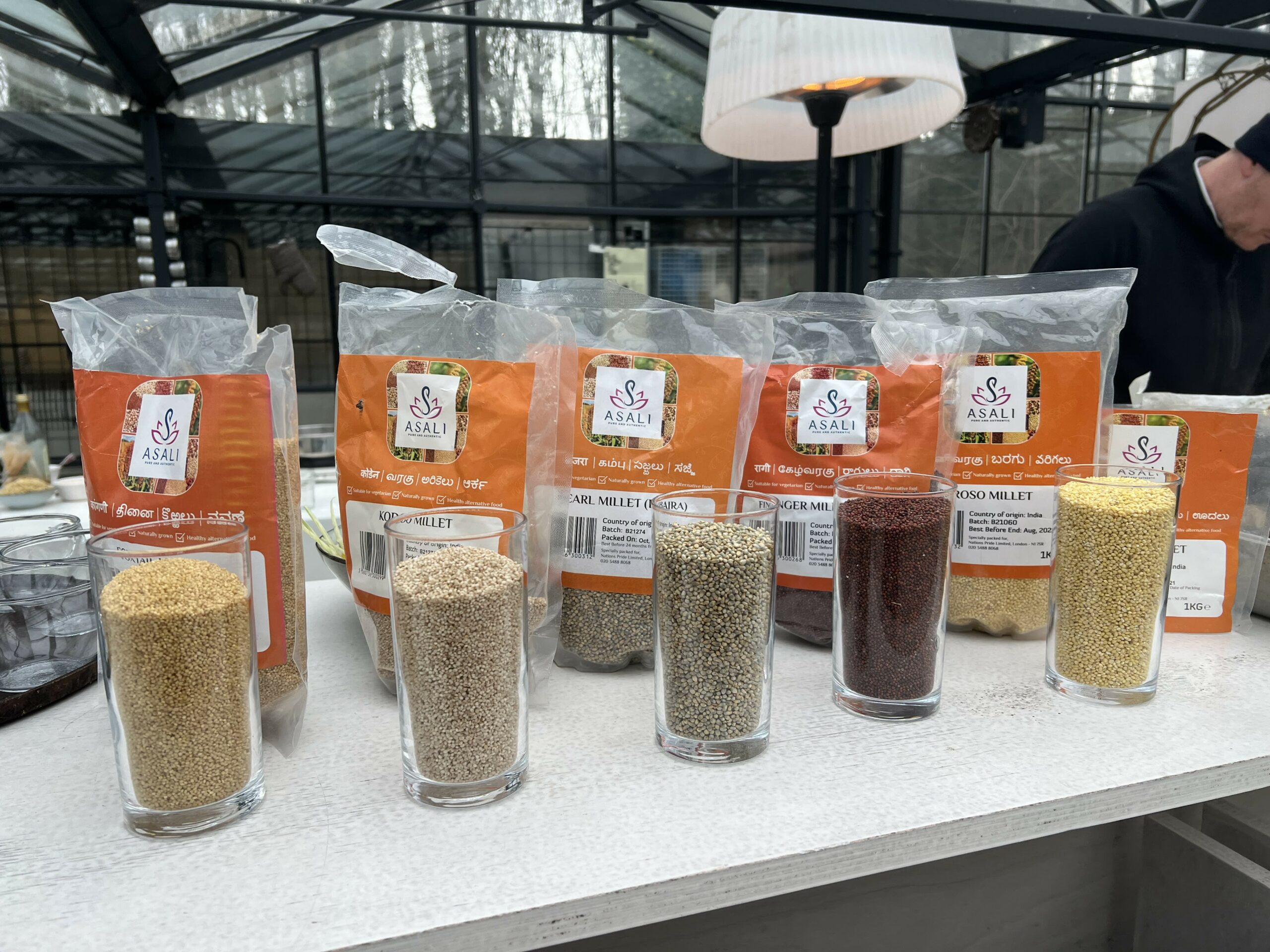
Time for action
In much the same way as I felt when I lived in the UK, many people will be largely oblivious to the changes happening in the world, especially when it comes to water. Those who live in developed nations and live in cities may not be feeling the strain that these systems are under, but will most likely be feeling the secondary effects such as record food inflation and soaring energy costs.
The responsibility falls to each and every one of us to make changes in our daily lives, especially for those working in our food systems. Chefs hold a special responsibility in this regard. They influence tastes, food trends and contribute a great deal to the demand aspect of how foods are produced and where. It all starts with a conversation. Be inquisitive and don’t take things at face value. Ask questions and make connections. Speak to your supplier about where the ingredients are from, how they are farmed, and how you can get in touch to find out more. Find local farmers who can supply you with ingredients and develop that relationship.
In connecting these dots we can start to develop more understanding and, in turn, build demand for food grown in sustainable ways. This includes putting pressure on agronomists to adopt regenerative methods but also to increase the production of crop biodiversity, as well as build awareness amongst citizens on the importance of eating diverse crops. In asking for these types of crops we are acknowledging the role that water plays in agriculture and creating demand for a more robust system, less reliant on large amounts of water.
Progress is only a dream if we all stay asleep.
Meet your farmers.
Diversify your diet.
Stay inquisitive.
World Water Day Recipe
Bean Ragu with Marmite Turnip and Millet
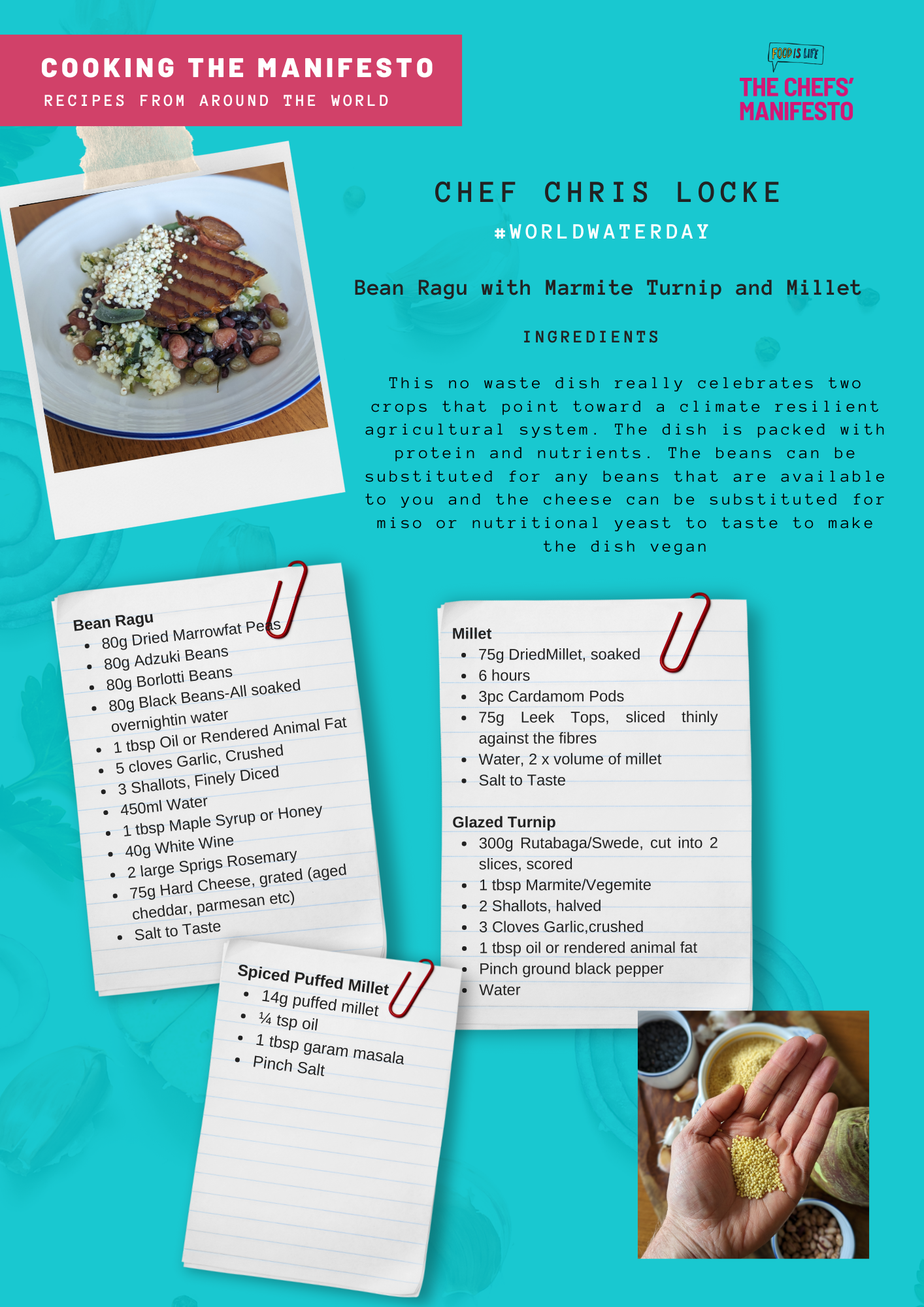
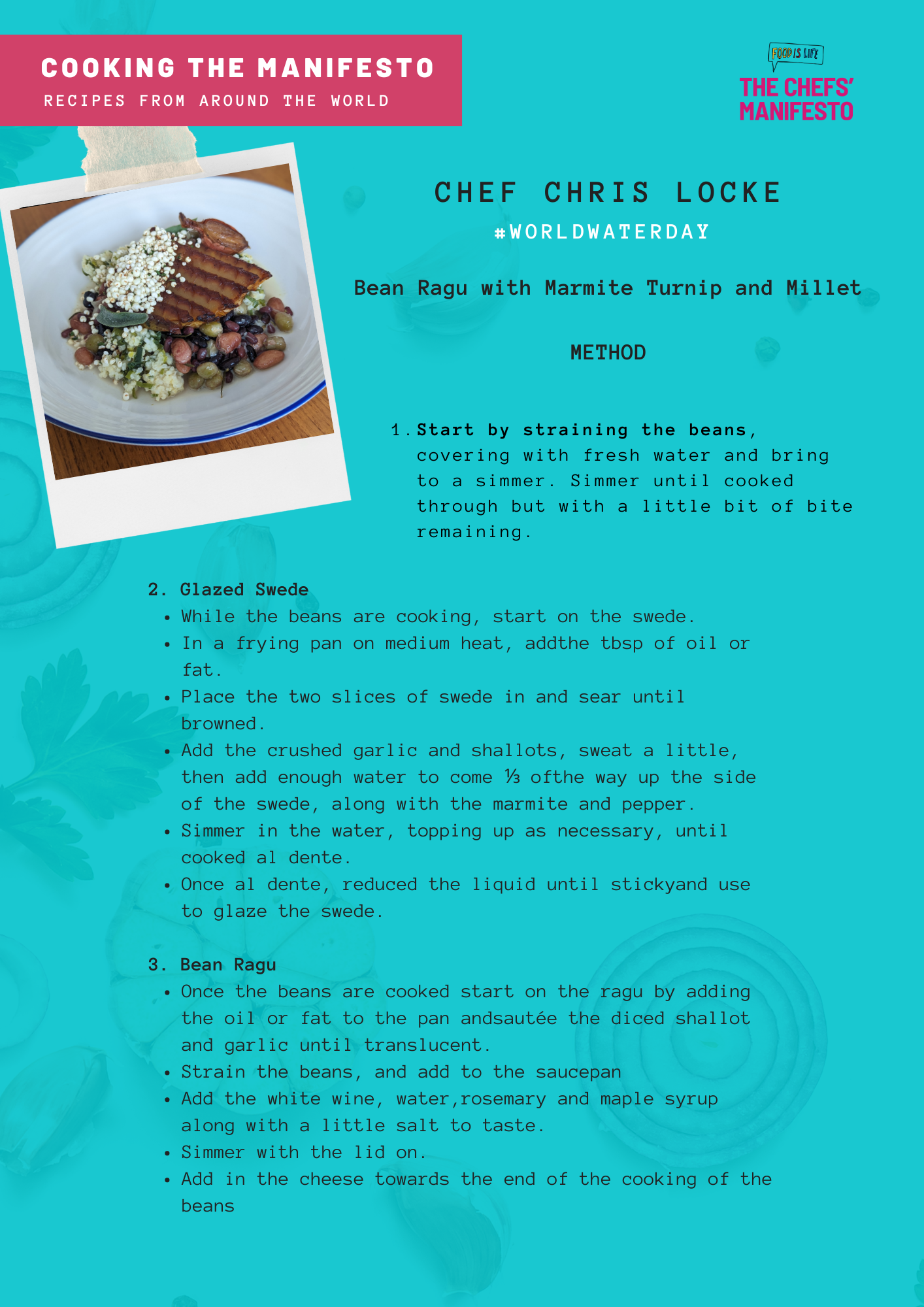
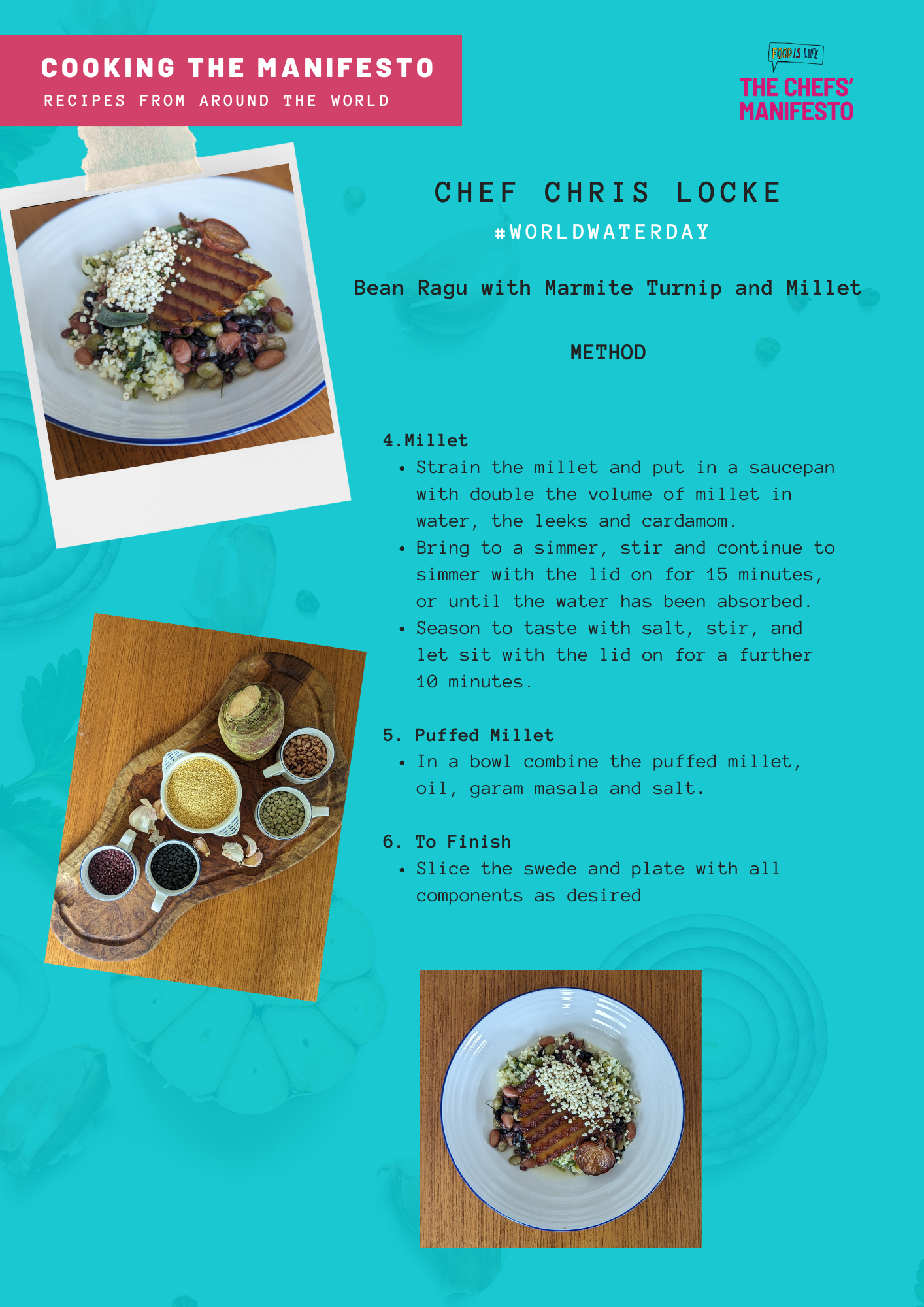

English by birth, Chris Locke has honed his culinary skills and knowledge internationally through the UK, Australia and France and Central America. Now homed in Toronto, Chris has a passion for using locally sourced ingredients, showcasing the best of Ontario’s bounty, bringing honest and challenging dishes to the table. There is a heavy emphasis on seasonality in his cooking, using fermentation and preservation where possible to lengthen the seasons and transform their flavours.
Chris was most recently the Executive Chef of Marben Restaurant and The Cloak Bar and was a proponent of guiding the restaurant to a no-tipping model; increasing benefits and working conditions for employees and promoting a professional workplace.
Chris is also the co-founder of Sustainuary: a social awareness campaign designed to educate and work towards reform in our food systems.
Chris is now most focused on his advocacy role around food systems, educating where possible and being a proponent of change.
Follow Chris’s journey on Instagram!
